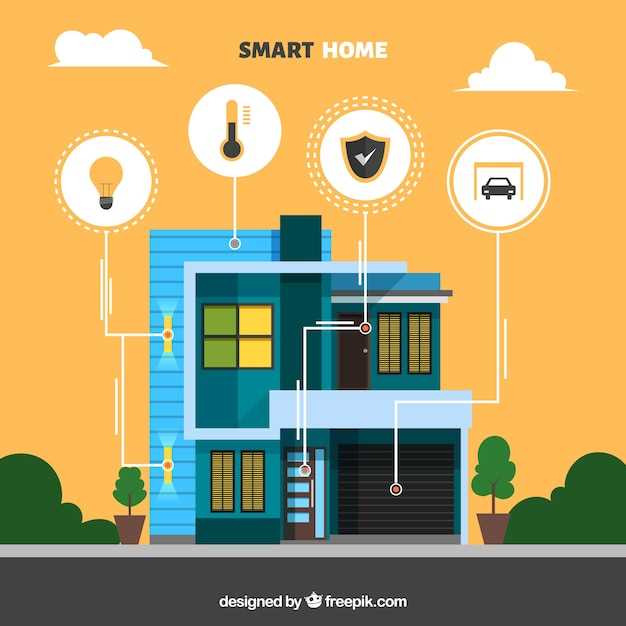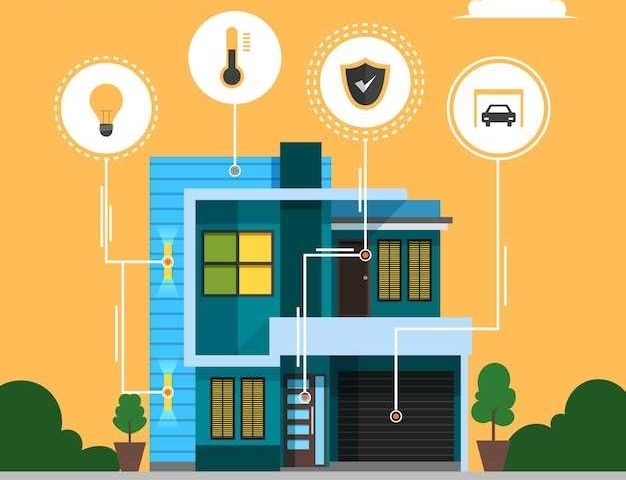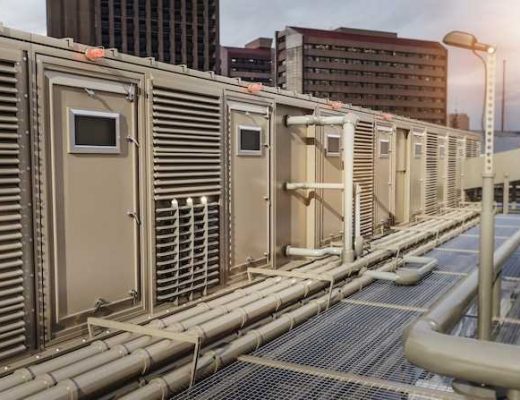
In today’s rapidly evolving world, ensuring the safety and security of commercial properties has become an increasingly vital concern. As businesses strive to safeguard their assets, employees, and customers, the implementation of robust security systems and protocols has become an imperative. By adopting comprehensive measures, organizations can effectively mitigate risks, deter potential threats, and maintain a secure environment.
Fortifying Perimeter Defenses: One of the fundamental aspects of commercial property security is establishing a strong and impenetrable perimeter. This involves implementing physical barriers, such as fences, gates, and access control systems, to regulate entry and exit points. By fortifying the boundaries, businesses can effectively control access, prevent unauthorized individuals from entering the premises, and create a visible deterrent for potential intruders.
Implementing Advanced Surveillance: In an era where technology plays a pivotal role in security, the integration of advanced surveillance systems is crucial. Closed-circuit television (CCTV) cameras, strategically positioned throughout the property, provide real-time monitoring and recording capabilities. These systems not only act as a deterrent but also serve as valuable evidence in the event of an incident. Additionally, the utilization of cutting-edge video analytics software enhances the effectiveness of surveillance, enabling businesses to detect suspicious activities and respond promptly.
Understanding the Importance of Commercial Property Security
In today’s rapidly evolving business landscape, ensuring the security of commercial properties has become an indispensable aspect of any successful enterprise. Safeguarding valuable assets, protecting sensitive information, and ensuring the safety of employees and customers are paramount concerns for businesses of all sizes and industries. This section aims to shed light on the significance of commercial property security and the crucial role it plays in maintaining a secure and thriving business environment.
The Value of Asset Protection
Commercial properties often house a wide range of valuable assets, including equipment, inventory, and intellectual property. These assets are vital for the smooth operation and profitability of a business. Implementing robust security measures helps deter theft, vandalism, and unauthorized access, safeguarding these valuable assets from potential harm. By protecting assets, businesses can minimize financial losses, maintain operational continuity, and preserve their competitive edge in the market.
Ensuring Safety and Peace of Mind
Creating a secure environment within commercial properties is essential for the safety and well-being of employees, customers, and visitors. By implementing comprehensive security systems and protocols, businesses can effectively mitigate potential risks, such as workplace violence, unauthorized entry, or accidents. This not only protects individuals within the premises but also fosters a sense of safety and peace of mind, enhancing productivity, customer satisfaction, and overall business reputation.
| Benefits of Commercial Property Security |
|---|
| Protection of valuable assets |
| Prevention of theft, vandalism, and unauthorized access |
| Mitigation of potential risks and accidents |
| Enhancement of employee and customer safety |
| Preservation of business continuity and reputation |
Choosing the Right Security Systems for Your Commercial Property
In today’s ever-evolving world, ensuring the safety and protection of your commercial property is of utmost importance. With a wide range of security systems available, it is crucial to choose the right ones that align with your specific needs and requirements. This section will guide you through the process of selecting the most suitable security systems for your commercial property, taking into consideration various factors such as size, location, and potential threats.
Understanding Your Security Needs
Before diving into the selection process, it is essential to have a clear understanding of your security needs. Assessing the vulnerabilities and potential risks that your commercial property may face is the first step towards identifying the right security systems. Consider factors such as the value of assets, the level of foot traffic, and the nature of your business operations. This evaluation will help you determine the level of security measures required and the specific areas that need to be covered.
Types of Security Systems
Once you have identified your security needs, it is time to explore the different types of security systems available. From surveillance cameras and access control systems to alarm systems and perimeter protection, there is a wide range of options to choose from. Each system serves a specific purpose and offers unique features. It is crucial to evaluate the pros and cons of each system and consider how they align with your security needs. Additionally, consider the scalability and integration capabilities of the systems to ensure they can adapt to future security requirements.
Surveillance Cameras: Surveillance cameras are a fundamental component of any commercial property security system. They provide real-time monitoring and recording capabilities, deterring potential threats and aiding in investigations if an incident occurs. Consider factors such as camera resolution, coverage area, and storage capacity when selecting surveillance cameras.
Access Control Systems: Access control systems regulate entry and exit points, ensuring that only authorized individuals can access specific areas of your commercial property. These systems can include key cards, biometric scanners, or keypad entry systems. Evaluate the level of access control required for different areas of your property and choose a system that offers the necessary features and flexibility.
Alarm Systems: Alarm systems are designed to detect and alert you of unauthorized entry or potential security breaches. They can include sensors for doors, windows, and motion detection. Consider the reliability, responsiveness, and ease of use of alarm systems when making your selection.
Perimeter Protection: Perimeter protection systems help secure the boundaries of your commercial property, deterring unauthorized access. These systems can include fences, gates, and sensors. Evaluate the level of perimeter protection required based on the location and nature of your property.
By understanding your security needs and exploring the different types of security systems available, you can make an informed decision when choosing the right security systems for your commercial property. Remember to consider factors such as reliability, scalability, and integration capabilities to ensure a comprehensive and effective security solution.
Access Control: Enhancing Security through Restricted Entry

Controlling access to commercial properties is a crucial aspect of maximizing security and protecting valuable assets. By implementing effective access control measures, businesses can enhance their overall security posture and mitigate the risk of unauthorized entry. This section explores the importance of restricted entry and highlights various strategies and technologies that can be employed to achieve robust access control.
The Significance of Restricted Entry
Restricted entry plays a pivotal role in safeguarding commercial properties against potential threats. By limiting access to authorized personnel only, businesses can prevent unauthorized individuals from entering sensitive areas, thereby reducing the risk of theft, vandalism, or other malicious activities. Restricted entry also helps in maintaining privacy, confidentiality, and compliance with regulatory requirements.
Strategies and Technologies for Effective Access Control
Implementing effective access control requires a combination of strategies and technologies tailored to the specific needs of a commercial property. One common approach is the use of physical barriers such as gates, fences, and turnstiles to restrict entry points. These barriers can be complemented with electronic access control systems, including keycards, biometric scanners, and proximity readers, to ensure only authorized individuals can gain entry.
Another crucial aspect of access control is the establishment of access policies and protocols. This involves defining who has access to different areas of the property, setting up visitor management systems, and implementing procedures for granting temporary access to contractors or other non-permanent personnel. Regular audits and reviews of access control systems are also essential to identify any vulnerabilities or weaknesses that may need to be addressed.
Furthermore, integrating access control systems with other security measures, such as video surveillance and alarm systems, can provide a comprehensive security solution. This allows for real-time monitoring of access points and immediate response to any unauthorized attempts. Additionally, remote access control management systems enable businesses to monitor and manage access from a centralized location, enhancing convenience and efficiency.
| Benefits of Restricted Entry | Strategies and Technologies |
|---|---|
|
|
Surveillance Systems: Keeping an Eye on Your Commercial Property
Ensuring the safety and security of your business premises is of utmost importance. One crucial aspect of maintaining a secure environment is the implementation of effective surveillance systems. These systems play a vital role in monitoring and safeguarding your commercial property, providing you with peace of mind and protection against potential threats.
Surveillance systems act as vigilant eyes, constantly observing and recording activities within and around your premises. By utilizing advanced technology and state-of-the-art equipment, these systems enable you to keep a watchful eye on your property, deterring criminal activities and minimizing the risk of theft, vandalism, or unauthorized access.
With the ability to capture high-quality video footage, surveillance systems provide valuable evidence in the event of any security breaches or incidents. This evidence can be instrumental in identifying perpetrators, aiding law enforcement agencies, and facilitating the investigation process. Additionally, the presence of visible surveillance cameras acts as a deterrent, discouraging potential wrongdoers from targeting your property.
Modern surveillance systems offer a range of features and functionalities to enhance the security of your commercial property. These include motion detection, night vision, remote access, and real-time monitoring capabilities. By utilizing these features, you can customize your surveillance system to suit your specific security needs and ensure comprehensive coverage of your premises.
It is essential to implement surveillance systems in strategic locations throughout your commercial property. Entrances, exits, parking lots, storage areas, and high-risk zones should be carefully monitored to minimize vulnerabilities and maximize security. By strategically placing cameras and utilizing a combination of fixed and pan-tilt-zoom (PTZ) cameras, you can effectively cover all critical areas and maintain a comprehensive surveillance network.
In conclusion, surveillance systems are an indispensable component of commercial property security. By keeping a constant watch over your premises, these systems provide a proactive approach to security, deterring potential threats, and ensuring the safety of your business. Investing in a reliable and advanced surveillance system is a crucial step towards safeguarding your commercial property and protecting your assets.
Alarm Systems: Prompt Response to Potential Threats
In the realm of property security, one crucial aspect is the implementation of effective alarm systems that ensure a prompt response to potential threats. These systems play a vital role in safeguarding commercial establishments and mitigating risks associated with unauthorized access, theft, and other security breaches. By promptly detecting and alerting relevant authorities to potential threats, alarm systems act as a deterrent and provide a sense of security to property owners and occupants.
Enhanced Detection and Alert Mechanisms
Modern alarm systems are equipped with advanced detection mechanisms that utilize cutting-edge technology to identify potential threats accurately. These systems employ a combination of sensors, such as motion detectors, door/window sensors, and glass break detectors, to detect unauthorized entry attempts or suspicious activities. Once a potential threat is detected, the alarm system promptly triggers an alert, notifying the designated authorities or security personnel, enabling them to respond swiftly and appropriately.
Integration and Monitoring
Alarm systems are often integrated with comprehensive security networks, enabling centralized monitoring and control. This integration allows for real-time monitoring of multiple areas within a commercial property, ensuring a proactive approach to security. Through a centralized control panel or security operations center, security personnel can monitor alarm statuses, receive alerts, and assess potential threats promptly. This integration also facilitates the coordination of response efforts, ensuring a swift and effective response to any security incidents.
| Benefits of Alarm Systems |
|---|
| 1. Deterrence: The presence of visible alarm systems acts as a deterrent to potential intruders, reducing the likelihood of security breaches. |
| 2. Rapid Response: Prompt alerts from alarm systems enable authorities or security personnel to respond quickly, minimizing the potential damage or loss. |
| 3. Peace of Mind: The implementation of reliable alarm systems provides property owners and occupants with a sense of security and peace of mind. |
| 4. Insurance Benefits: Many insurance providers offer reduced premiums for properties equipped with robust alarm systems, recognizing the reduced risk of security incidents. |
Implementing Effective Security Protocols for Commercial Properties
Ensuring the safety and protection of commercial properties is of utmost importance in today’s ever-changing security landscape. In order to safeguard valuable assets and maintain a secure environment, it is crucial to implement effective security protocols tailored specifically for commercial properties.
Developing Comprehensive Security Strategies
Creating a comprehensive security strategy is the foundation for implementing effective security protocols. This involves conducting a thorough assessment of the property’s vulnerabilities and identifying potential risks. By understanding the unique challenges faced by commercial properties, security measures can be tailored to address specific threats.
Implementing access control systems, such as key card or biometric authentication, can restrict unauthorized entry and enhance overall security. Surveillance cameras strategically placed throughout the property can provide real-time monitoring and deter potential criminal activity. Additionally, alarm systems and motion sensors can alert security personnel or law enforcement agencies in the event of a breach.
Training and Educating Staff
Equipping staff with the necessary knowledge and skills is essential for effective security protocols. Conducting regular training sessions on emergency response procedures, recognizing suspicious behavior, and handling potential threats can empower employees to act swiftly and appropriately in critical situations.
Furthermore, educating staff on cybersecurity best practices can help prevent data breaches and protect sensitive information. Implementing strong password policies, regularly updating software and systems, and conducting phishing awareness campaigns can significantly reduce the risk of cyberattacks.
By fostering a culture of security awareness and providing ongoing training, commercial properties can ensure that all employees are actively engaged in maintaining a secure environment.
In conclusion, implementing effective security protocols for commercial properties requires a comprehensive approach that addresses specific vulnerabilities and risks. By developing comprehensive security strategies and providing ongoing training and education to staff, commercial properties can maximize their security measures and protect valuable assets.



